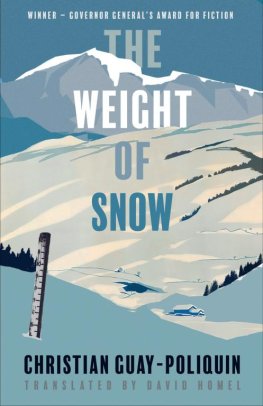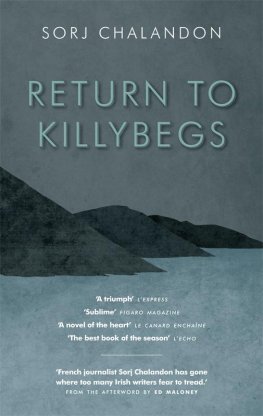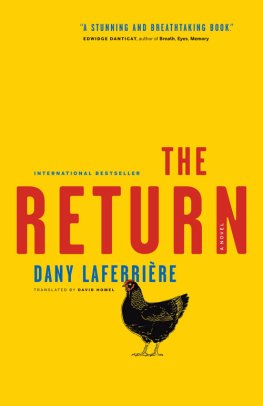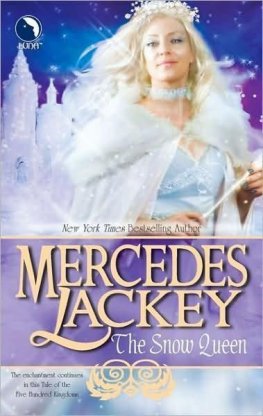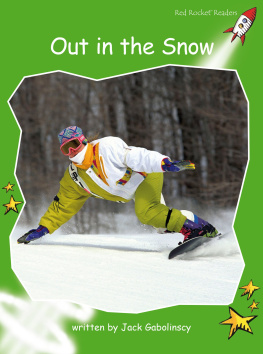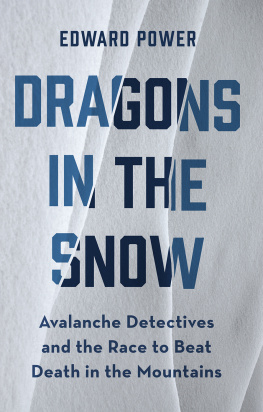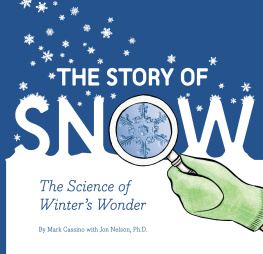Christian Guay-Poliquin
THE WEIGHT OF SNOW
today
time turned the snow to metal
and the silence rejoiced
to form a perfect union
the white strokes rush groundward
mountains grab onto
the bark of trees and on
spiny arms
the greens disappear
the blues become opalescent
the edges of the browns and russets
fade
at times
a bird will draw a black line
across this accelerated space
J.-N. POLIQUIN, WINTER 1984

Look. This place is vaster than any human life. Anyone who would try to flee will be forced to retrace his steps. Anyone who thinks he is moving in a straight line is describing great concentric circles. Here, everything slips away from your hands and your eyes. Here, forgetfulness of the world outside is stronger than any memory. Look again. This labyrinth offers no way out. Wherever our eyes fall, it is there. Look closer. No monster, no famished beast crouches in its corridors. But we are caught in the trap. Either we wait until the days and nights defeat us. Or we fashion ourselves wings and escape.
This is the land of snow, and it does not share its domain. It dominates the landscape, it weighs upon the mountains. The trees bow, they reach for the earth, their backs bent. Only the great spruce refuse to give in. They take their punishment, straight and black. They trace the end of the village and the beginning of the forest.
By my window, the birds come and go, quarrel, and scratch for food. From time to time, one of them will observe the quiet house with a worried eye.
On the frame outside, a thin branch stripped bare has been attached horizontally as a kind of barometer. If it points upward, the weather will be clear and dry. If it points down, there will be snow. Right now the weather is uncertain; the branch is in mid-journey of its trajectory.
It must be late. The grey sky is opaque and without nuance. The sun could be anywhere. A few snowflakes dance in the air and hang onto every second. A hundred steps from the house, in the clearing, Matthias is pushing a long stick into the snow. It looks like the mast of a ship, but without sails or flags.
Drops of water shiver on the roofline and slip down to the tips of the icicles. When the sun comes out, they sparkle like sharpened blades. From time to time, one of them will pull away, fall, and stab the snow. A dagger thrust into immensity. But the snow is invincible. Soon it will reach the bottom of my window. Then the top. Then I will be blind.
This is winter. The days are short and frigid. The snow shows its teeth. The great expanse of space shrinks.
The window frame is damp. The wood stained by spongy, tinted circles. When it gets very cold, they are covered with crystals of frost. A little like lichen.
Logs crackle in the woodstove. From my bed, I can see the glittering coals through the air vent. The stove is ancient, a massive piece. Its doors creak when they open. This heap of black, burning cast iron is the centre of our lives.
I am alone on the porch. Everything is motionless. Everything in its place. The stool by the entrance, the rocking chair, the kitchen utensils, everything. A strange golden cylinder sits on the table. It was not there this morning. Matthias must have gone to the other side. But I noticed nothing.
Pain leaves me no respite. It holds me, it grips me, it possesses me. To tolerate it, I close my eyes and imagine I am at the wheel of my car. If I concentrate, I can hear the motor roaring. And see the landscapes go by, dazzled by the vanishing point of the road. But when I open my eyes, reality crushes me. I am bound to this bed, my legs imprisoned by two heavy splints. My car a heap of twisted metal somewhere beneath the snow. I am no longer the master of my fate.
My stomach breaks the silence. I am hungry. I feel weak and stiff. On the bedside table, some crumbs of black bread and the remains of oily coffee. Matthias will be back any time now.
The door opens and a gust of cold air blows into the room. Matthias comes in and drops an armful of wood next to the stove. The logs crash to the floor and shards of bark go flying.
Matthias pulls off his coat, kneels down, and stirs the fire with a poker. Behind him, the snow from his boots begins melting and seeks its level on the uneven floor.
Its not very cold, he tells me, holding his hands toward the source of heat, but its damp. It chills you to the bone.
When the flames begin to growl and lick the iron frame, Matthias closes the stove doors, puts the soup pot on to warm, and turns in my direction. His bushy eyebrows and white hair, and the deep wrinkles criss-crossing his forehead make him look like a mad scientist.
I have something for you.
I give him a questioning look. Matthias picks up the gold cylinder from the table and hands it to me. He gives me a big smile. The cylinder is heavy and telescopic. Its ends are covered in glass. I examine it from all angles. It is a spyglass. Like the ones sailors used long ago to pick out the thin line of the coast, or the enemys ships.
Look outside.
I sit up in bed, extend the sliding tube, and place it against my eye. Everything moves toward me and each object takes on precise dimensions. As if I were on the other side of the window. The black flight of the birds, the footsteps in the snow, the unreal calm of the village, the edge of the forest.
Keep looking.
I know this landscape by heart. I have been watching it for some time now. I do not really remember the summer because of the fever and the drugs, but I did see the slow movement of the landscape, the grey autumn sky, the reddening light of the trees. I saw the ferns devoured by frost, the tall grass breaking when a breeze rose up, the first flakes landing upon the frozen ground. I saw the tracks of the animals that inspected the area after the first snow. The sky has swallowed everything up ever since. The landscape is in waiting. Everything has been put off until spring.
Nature with no respite. The mountains cut off the horizon, the forest hems us in on all sides, and the snow blinds us.
Look harder, Matthias tells me.
I examine the long stick that Matthias set up in the clearing. He has added minute graduation marks on it.
Its for measuring snow, he announces, triumphant.
With the spyglass, I can see the snow has reached forty-one centimetres. I consider the whiteness of the landscape a moment, then slump back on my bed and close my eyes.
Great, I tell myself. Now we can put numbers to our distress.
Matthias is preparing black bread. A kind of brick made of buckwheat flower and molasses. According to him, its filling and nutritious. And the best thing, since we have to ration our supplies as we wait for the next delivery.
Like an old shaman, he mixes, kneads, and shapes the dough with a striking economy of effort. When he finishes, he shakes off his clothes in a cloud of flour and cooks the cakes of black bread directly on the stovetop.
The weather has cleared. I observe the houses in the village, among the trees, at the foot of the hill. Most of them show no signs of life, though a few chimneys send up generous plumes of smoke. The grey columns rise straight into the sky as if refusing to melt into the vastness. There are twelve houses. Thirteen with ours. With the spyglass the village seems close by, but that is an illusion. I would need more than an hour to walk there. And I still cant get out of bed.

